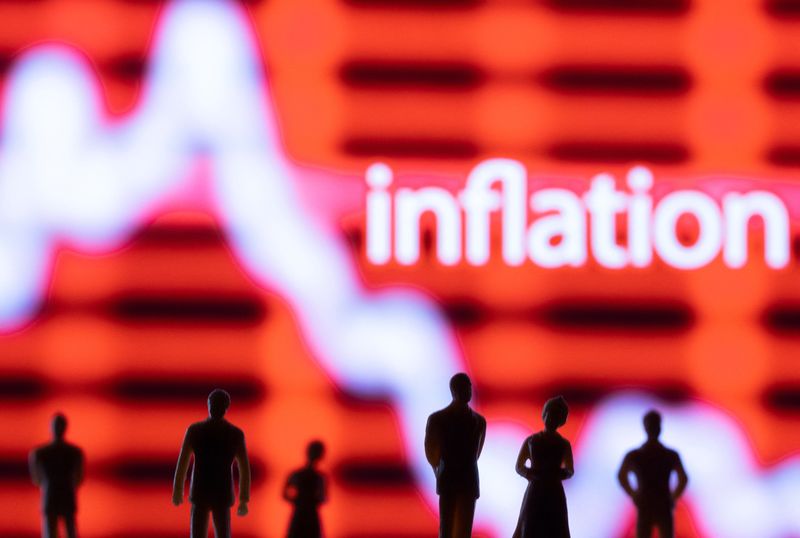By Davide Barbuscia
NEW YORK (Reuters) - Central banks' focus on fighting persistently high inflation could lead to a recession over the next two years and raise the risk of 'financial accidents', U.S. investment firm PIMCO said on Wednesday.
Rising prices have dominated the global financial markets this year, pushing central banks to increase interest rates to contain demand.
But uncertainty around the pace of tighter monetary policies and its consequences for global economies have led to high volatility in markets.
Geopolitical instability caused by the war in Ukraine has also contributed to wild price swings across bonds and stocks, while exacerbating inflation by pushing the costs of commodities such as oil and gas.
"We see an elevated risk of recession over the next two years," PIMCO said in a report on Wednesday, with reference to the U.S. and other advanced economies.
The possibility of economic contraction is due to a variety of risks including stubbornly elevated inflation and the potential for more geopolitical unrest.
It also reflects "central banks’ intense focus on fighting inflation first, which raises the risk of financial accidents on top of the sharp tightening of financial conditions already seen,” said PIMCO.
The scramble by central banks to catch up with inflation has been devastating for bond investors this year. U.S. government bond yields - which move inversely to prices - have risen sharply in what has been the worst start to the year in history for bond markets.
Because of inflationary concerns, monetary and fiscal responses to a recession, if and when it arrives, could be more muted and slower than in previous cycles, PIMCO said.
"Thus, while for many reasons our view is that the next recession is unlikely to be as deep as the Great Recession of 2008 or the COVID sudden stop of 2020, it may well be more prolonged," it said, and a recovery more sluggish.
PIMCO, one of the world's largest fixed income investors, said investors should build resilience in their portfolios in the face of rising uncertainty, with certain products such as U.S. Treasury Inflation-Protected Securities (TIPS) offering some protection.

It also said it will favour high-quality corporate debt due to potentially higher companies' defaults in a recession marked by lower monetary and fiscal support.
"Central banks focused on inflation and governments focused on national security and environmental security considerations will likely be much less inclined to support companies outside of sectors deemed important to the targeted pursuit of resilience," it said.